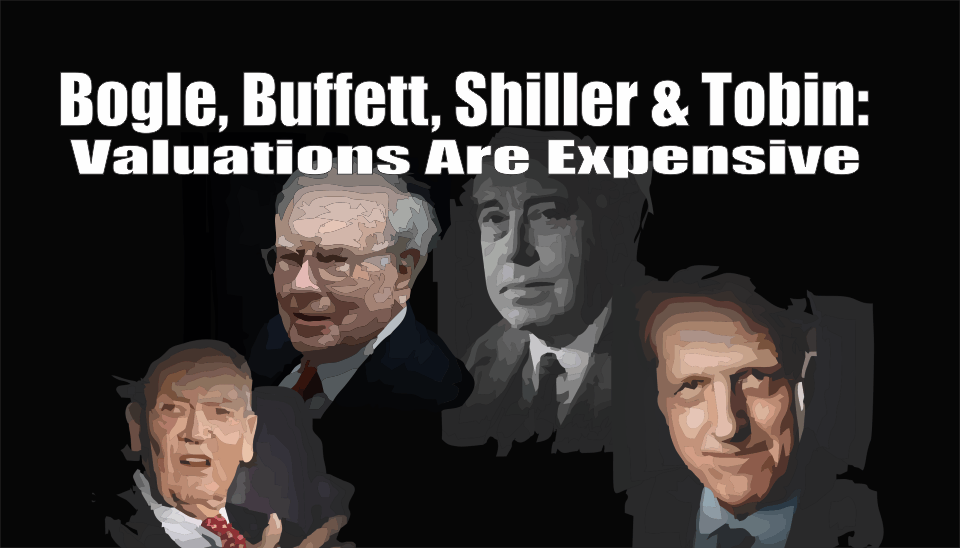
During my morning reading, I ran across a couple of very interesting articles that tied a common theme relating to the current risks in the financial markets.
Via Zerohedge:
88-year-old investing icon John “Jack” Bogle, founder of the Vanguard Group, said:
“The valuations of stocks are, by my standards, rather high, but my standards, however, are high.
When considering stock valuations, Bogle’s method differs from Wall Street’s. For his price-to-earnings multiple, Bogle uses the past 12 months of reported earnings by corporations, GAAP earnings, which include ‘all of the bad stuff,’ to get a multiple of about 25 or 26 times earnings.
‘Wall Street will have none of that. They look ahead to the earnings for the next 12 months and we don’t really know what they are so it’s a little gamble.’
He also noted that Wall Street analysts look at operating earnings, ‘earnings without all that bad stuff,’ and come up with a price-to-earnings multiple of something in the range of 17 or 18.
‘If you believe the way we look at it, much more realistically I think, the P/E is relatively high,’
‘I believe strongly that [investors] should be realizing valuations are fairly full, and if they are nervous they could easily sell off a portion of their stocks.’”
This, of course, from the father of “buy and hold” investing with whom millions of Americans have pumped roughly $4.7 Trillion into a whole smörgåsbord of indexed based ETF’s provided by Vanguard to meet investor appetites.
Think about that for a moment while you read the following snippet from Bloomberg:
“A buoyant and complacent stock market is worrying Richard H. Thaler, the University of Chicago professor who this week won the Nobel Prize in economics.
‘We seem to be living in the riskiest moment of our lives, and yet the stock market seems to be napping. I admit to not understanding it.
I don’t know about you, but I’m nervous, and it seems like when investors are nervous, they’re prone to being spooked. Nothing seems to spook the market, and if the gains are based on tax-reform expectations, surely investors should have lost confidence that tax reform is going to happen.’”











Leave A Comment